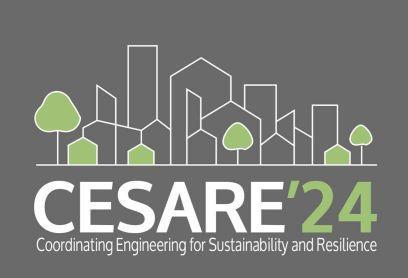Speaker
Description
Urban system transformation in view of sustainability is fundamental for efficient adaptation and mitigation of challenges faced by cities. Sustainable urban transitions, under the umbrella of circular economy, are key to effectively addressing future challenging scenarios and their impacts. The adoption of nature-based solutions (NBS) for circular resource management can provide beneficial ecosystem services to the urban built environment while promoting the conservation and reuse of resources within the urban cycle. The Circular City framework [1] outlined the use of NBS to tackle challenges related to urban circularity. One such challenge is 'Building system recovery', which involves the regeneration of the built environment. By implementing NBS, the lifespan of building systems, construction materials, buildings, as well as open spaces can be extended. This is achieved by reducing exposure to weathering from external agents, thereby reducing the rate of infrastructure renovations, retrofitting and replacements. Moreover, strategies that prioritize resource savings, greener environments, and water-sensitive systems can increase resilience by providing critical ecosystem functions such as stormwater management, greywater treatment and mitigation of the urban heat island effect. Building upon the Circular City framework, this contribution presents NBS units and interventions at different urban scales – materials, components, systems – aiming at addressing the circularity challenge of 'Building system recovery'. This is followed by a comprehensive analysis of input and output resource streams for strengthening circularity solutions in cities. This contribution describes state-of-the-art circularity frameworks aiming at supporting decision-makers and practitioners, while providing guidance tools for involving all relevant stakeholders, thereby supporting multifunctional implementation of NBS for inclusive and resilient circular cities.
[1] Langergraber et al., 2021. https://doi.org/10.3390/w13172355
| Keywords | urban built environment, green infrastructure, circular economy, circularity challenges, circular buildings, nature-based solutions |
|---|---|
| Topics | Impact of climate change on the built environment • Sustainable resilience of systems in the built environment • Environmental engineering • Smart cities • Circular economy • Innovation in materials, products and systems • Sustainable infrastructures • Facade engineering • Green technology for civil engineering • Green buildings |

